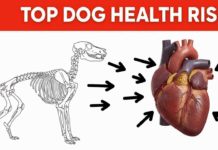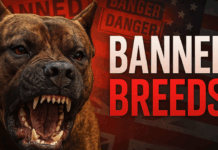Last Updated on May 4, 2024 by Dogs Vets
Army Dog Trainer: Roles & Importance Unveiled
In the world of military service, the role of an Army dog trainer is both crucial and fascinating. These skilled individuals play a vital part in training and handling dogs that serve alongside soldiers in various capacities.
Let’s delve into the world of military dog trainers and uncover the significance of their roles.
What is a Dog Trainer in the Army?
A dog trainer in the Army is a specialized professional responsible for training and handling dogs that are utilized in military operations. These trainers work closely with military working dogs to ensure they are prepared for a range of tasks, from detection to patrol duties.
What is a Military Dog Trainer Called?
A military dog trainer is often referred to as a K9 handler or dog handler. These individuals undergo rigorous training to develop the skills needed to work effectively with military working dogs.
Who Trains the Dogs in the Army?
Dogs in the Army are trained by a team of experienced military dog trainers who specialize in working with these intelligent and loyal animals. These trainers use various techniques to teach dogs the necessary skills for their roles in the military.
Do Army Dog Handlers See Combat?
Yes, Army dog handlers can see combat alongside their canine companions. These handlers are trained to work in high-stress environments and may be deployed to conflict zones where their skills are crucial in detecting threats and providing support to troops.
Is it Hard to Become a Dog Handler in the Army?
Becoming a dog handler in the Army is a challenging process that requires dedication, physical fitness, and a love for working with animals. Candidates undergo rigorous training to ensure they are prepared for the demands of the role.
What Rank Are Military Dog Handlers?
Military dog handlers can hold various ranks within the Army, depending on their experience and expertise. These ranks can range from enlisted personnel to non-commissioned officers, reflecting the level of responsibility and skill required for the role.
Conclusion
In conclusion, Army dog trainers play a vital role in supporting military operations through their expertise in training and handling working dogs. Their dedication and skills contribute significantly to the success of missions and the safety of personnel.
The bond between a military dog trainer and their canine partner is a special one, built on trust, training, and mutual respect.
FAQs
1. How long does it take to become a military dog trainer?
Becoming a military dog trainer can take several months to years, depending on the specific training program and the individual’s progress.
2. What breeds of dogs are commonly used in the military?
Common breeds used in the military include German Shepherds, Belgian Malinois, Labrador Retrievers, and Dutch Shepherds.
3. Do military dog trainers receive specialized training?
Yes, military dog trainers undergo specialized training to develop the skills needed to work effectively with military working dogs.
4. Are military working dogs considered soldiers?
Military working dogs are often referred to as “canine soldiers” due to their integral role in military operations.
5. How are military working dogs cared for when not on duty?
Military working dogs receive care and attention from their handlers, including proper nutrition, exercise, and medical attention.
6. Can military working dogs be adopted after their service?
In some cases, military working dogs are eligible for adoption by civilians or former handlers after they retire from service.
7. What qualities make a successful military dog trainer?
Successful military dog trainers possess patience, dedication, physical fitness, and a deep understanding of canine behavior and training techniques.
References
- United States Army. “Military Working Dog Program.” www.army.mil/military-working-dog-program
- Department of Defense. “Canine Training Center.” www.defense.gov/canine-training-center

















